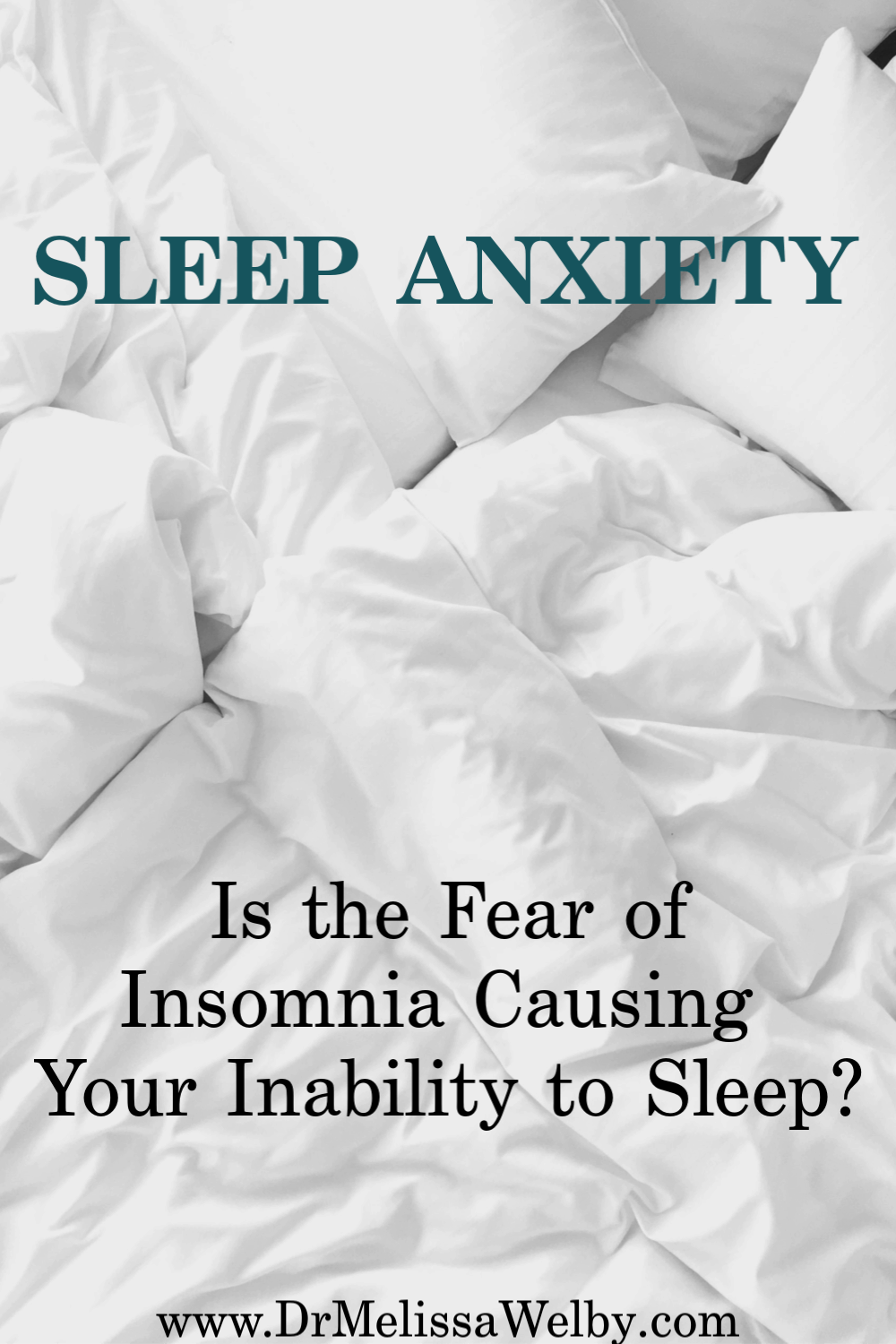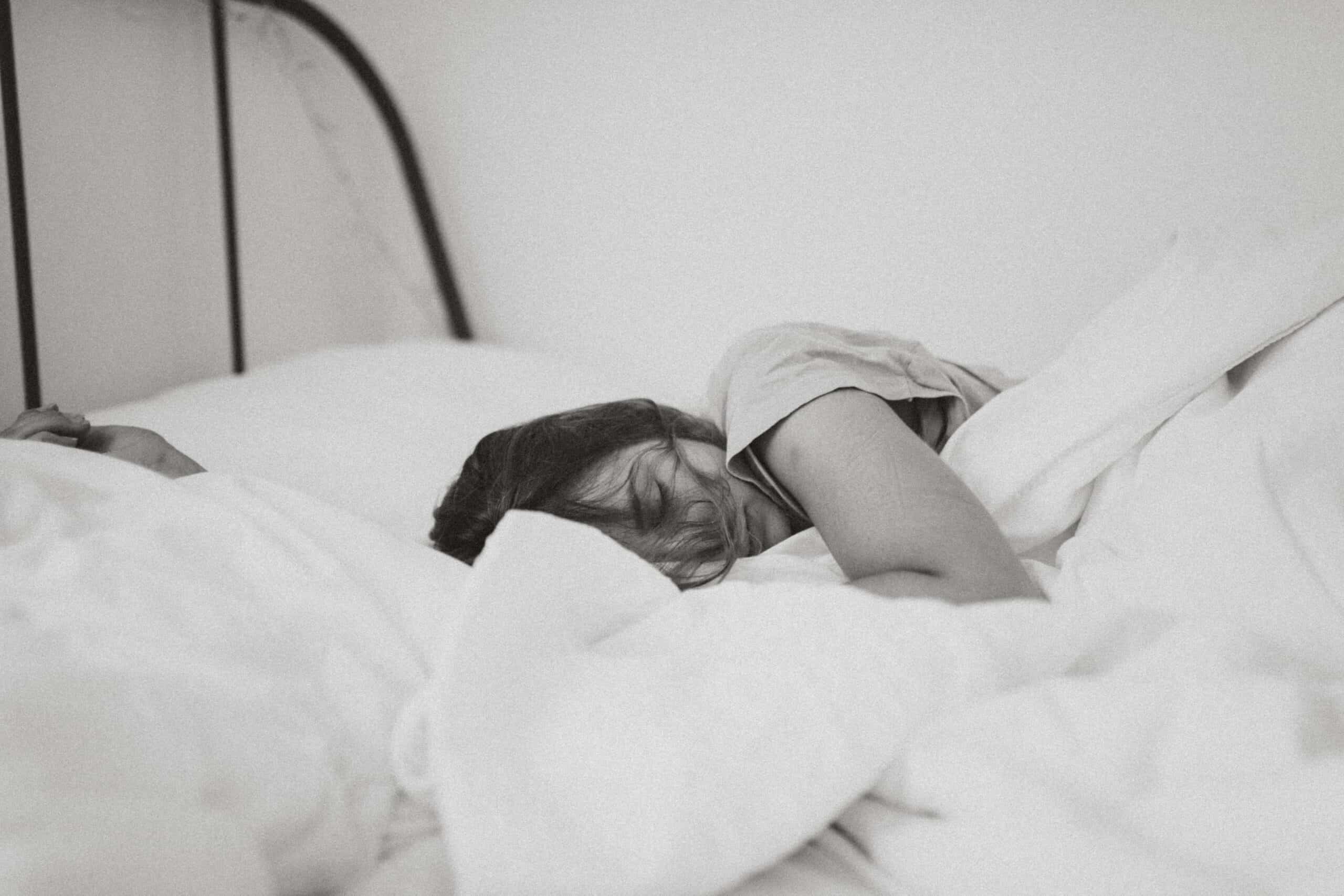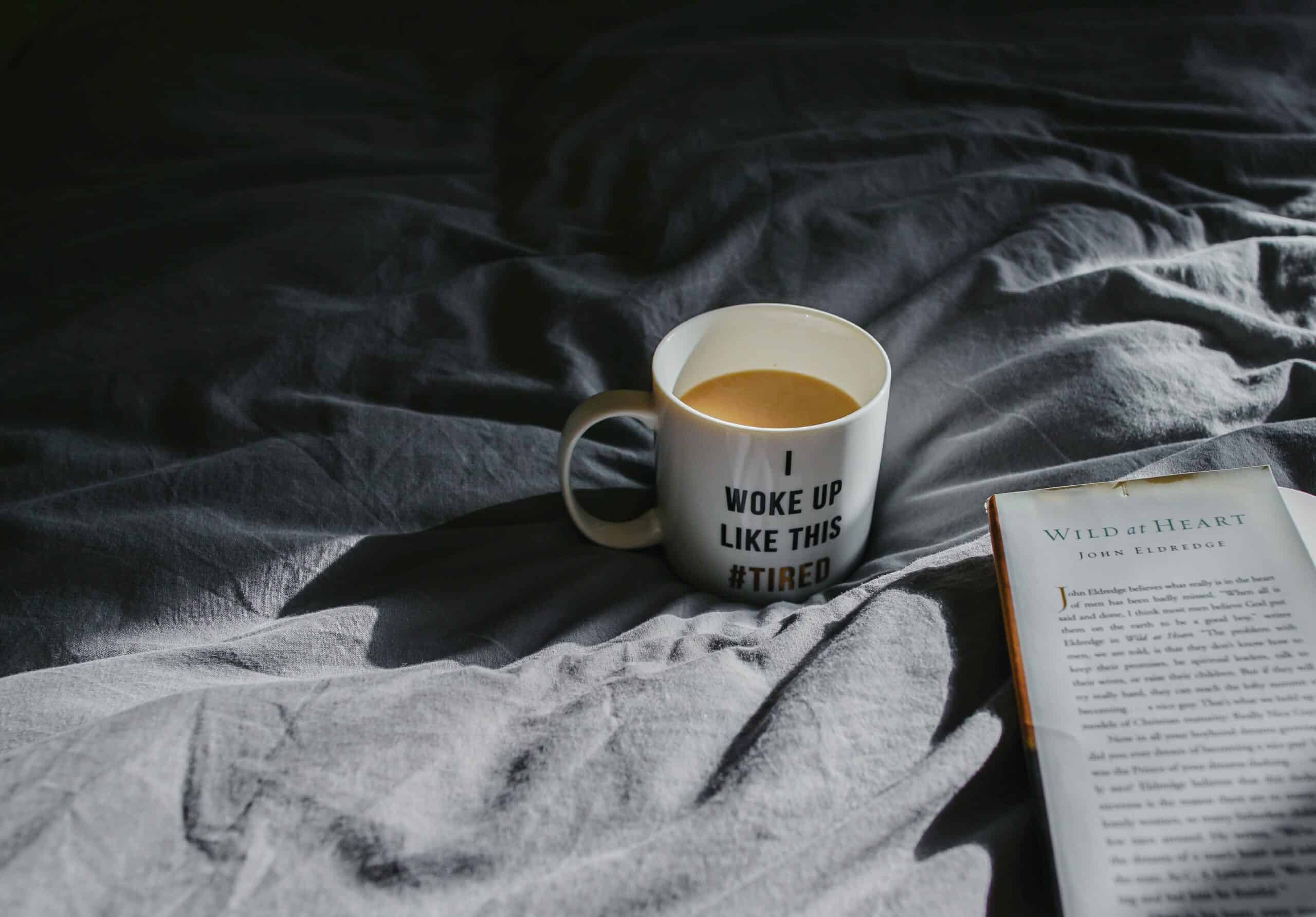Is the fear of insomnia causing your inability to sleep? In some people, insomnia can begin abruptly after one bad night of sleep. From there, sleep anxiety develops and becomes a nightly pattern. Worry builds as bedtime approaches, and by the time someone gets into bed, they are so worked up, they can’t fall asleep. The fear of not being able to sleep ends up driving insomnia.
After this lousy night of sleep, a negative association develops, and sleep begins to be linked with insomnia. I like this definition of negative association:
A negative association between two variables means that when one increases, the other one usually decreases.
In other words, the more that sleep gets associated with lying in bed stressed and unable to turn the brain off, the less it’s associated with rest, comfort, relaxation, and drifting off to sleep.
Marjorie’s experience with fear of insomnia*:
Marjorie is a 36-year-old working in advertising at a busy agency. Her job is fast-paced, cutthroat, and demands top-notch performance. Three years ago, soon after she started with the company, Marjorie was anxious about a presentation she had the next day. Usually, a good sleeper, she couldn’t shut her mind off and was unable to fall asleep. She kept watching the hours tick away and calculating how much sleep she could still get. The fear of doing terribly on her presentation continued to build. She finally got a few hours of sleep, but she felt awful in the morning.
Since this night, Marjorie has been anxious about whether she will fall asleep. She needs to be at the top of her game every day, and sleep deprivation isn’t going to get her there. Marjorie has started to think about these bedtime worries throughout the day. By the time she gets in bed, she is tense and unable to settle her brain or body. Her sleep is getting worse and worse.
*This patient example is fictionalized but demonstrative of what happens with many patients I work with.
Inability to sleep: A common cycle of insomnia
Once sleep anxiety develops, people often begin to procrastinate getting in bed. It seems easier to stay up until collapsing from exhaustion instead of facing the possibility of not falling asleep. This sleep-delaying behavior contributes to continued sleep deprivation.
To compensate for daytime exhaustion, people then drink coffee or take naps. Both of these actions can result in an inability to sleep later.
As bedtime approaches, worries about insomnia increase, and people may drink alcohol to try to relax and help them drift off easier. Unfortunately, alcohol further interferes with the ability to get quality, restorative sleep.
The insomnia cycle goes on and on until the fear itself is dealt with.
Treatment of sleep anxiety:
It’s essential to understand the source of insomnia to decide management. Obviously, if someone is drinking caffeine late in the day, or alcohol nightly, the treatment will be focused on changing the behavior.
But if the source of insomnia is fear, sleep anxiety is what needs to be targeted. If it isn’t dealt with, people often end up on long-term sleep medication. The fear of not being able to sleep is so great that people don’t want to risk ever going off it.
Treat the fear of not being able to sleep with cognitive-behavioral therapy for insomnia:
Cognitive-behavioral therapy for insomnia (CBTi) is an effective treatment for sleep anxiety. CBTi works by challenging a person’s misconceptions about sleep and dysfunctional beliefs about their insomnia that often drive the fear. It identifies behaviors sabotaging sleep (watching the time tick away) and changes negative assumptions and “catastrophic” predictions regarding the consequences of poor sleep (i.e., “if I don’t get 8 hours of sleep I will do terribly on my presentation, humiliate myself, and my job will be at risk”).
CBTi therapy will also incorporate:
- Education about sleep hygiene and identification of habits that interfere with getting to bed,
- Skills that will make it easier to get to sleep like relaxation training (progressive muscle relaxation, meditation, etc).
Insomnia does not need to be a chronic condition, so don’t settle for a lifetime of sleep medications. Get assistance and interrupt the cycle of insomnia and sleep anxiety that leads to an inability to sleep.
Have you experienced sleep anxiety? What have you done that has been helpful to overcome this?
Don’t miss the next post to get recommendations regarding safe and successful discontinuation of sleep medication
When sleep medications are incorrectly discontinued, people may be unable to sleep and draw an erroneous assumption that it means they cannot sleep without a sleep aid. Some medicines can have dangerous withdrawal if not appropriately tapered. This article will go over some general guidelines to consider when making a plan to discontinue sleep aids.
Related posts and book recommendations:
If you are using melatonin make sure you read this: Recommended melatonin dosage for adults: You may be surprised!
[amazon_link asins=’0471149047,1572246359,1572246278′ template=’ProductGrid’ store=’drmelissawelb-20′ marketplace=’US’ link_id=’7388836a-0ef5-4030-8882-ead6ad74f118′]






